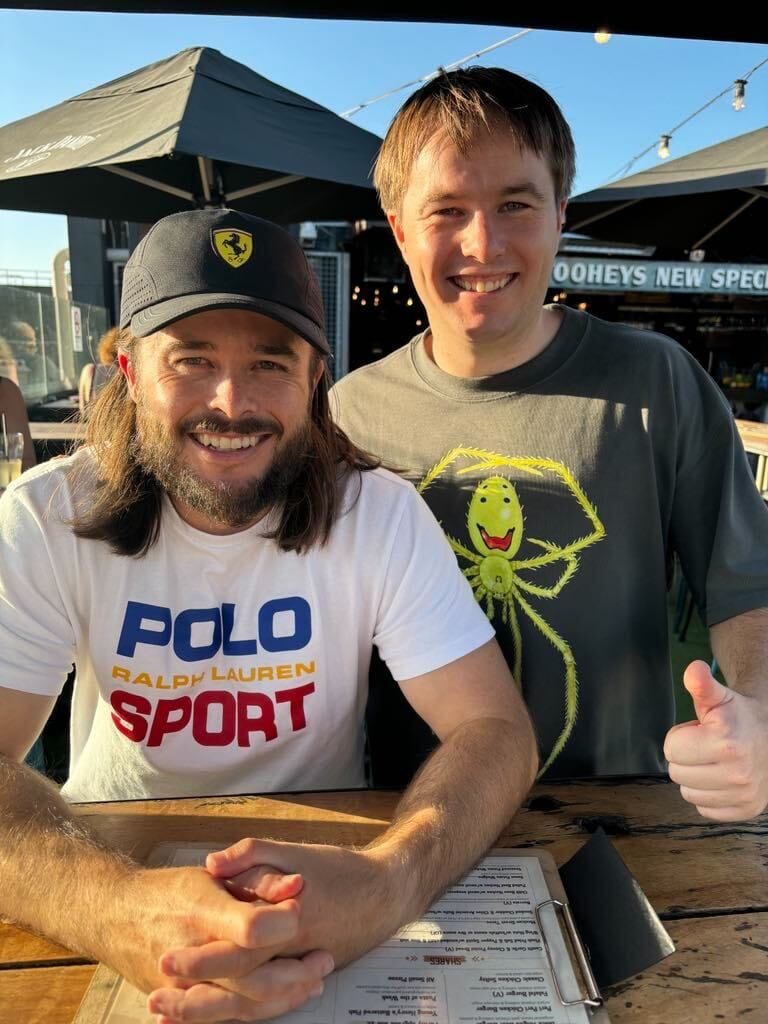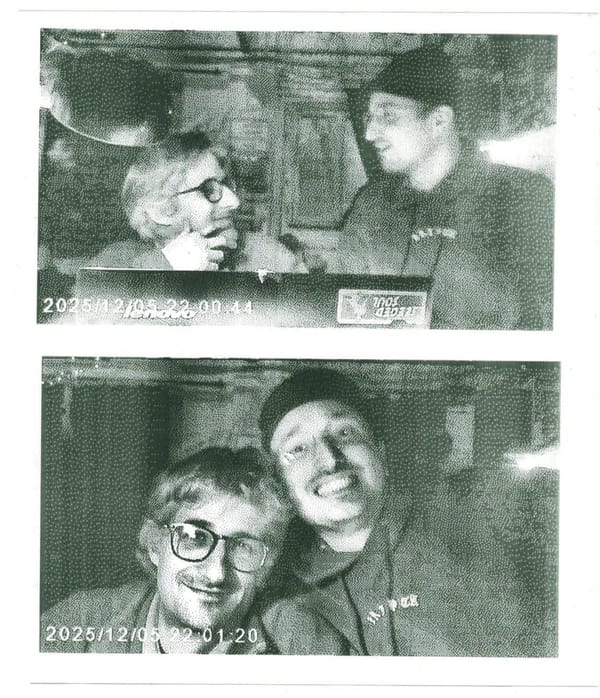Register for free to receive our newsletter, and upgrade if you want to support our work.
MMN Mag talked to Charles Carey, co-founder of Radio Cult, a streaming platform designed for online community radios.
MMN Mag: Radio Cult (radiocult.fm) is a software platform for setting up web radio stations. There are many other initiatives similar to you, for example Azuracast, Airtime, radio.co and others. What made you start Radio Cult?
Charles Carey: I started to produce my own music (grime, bass and jungle stuff) as a teenager. There was a big earthquake in 2011 in Christchurch, New Zealand, after which my family needed to leave the city, so I was forced to move away from my friends, my main “community” back then. That was the time I started to produce my own music. I listened to a lot of radio, mostly from the UK, and even sent my music to some of them – funnily, one of the first radio stations that ever played my music (Mode London) moved to using Radio Cult at the end of last year 🙂. It was a really big moment for me, coming full circle after a decade of being involved in the music and community radio scene.
When I launched Radio Cult in 2019, I was first building a mobile app to aggregate various web radio stations for a better listening experience, since most of them didn’t have an app. I decided to go full time on the project in 2023 and brought my brother onboard. Later we realised that most independent/community-based radio projects are unhappy with the streaming services provided by existing platforms for various reasons. Partly because they are incomplete (stopped developing as the company’s interest drifted away) or because they rely on technology and/or a mindset from 10+ years ago.
So here we are, a company whose main approach is to be close to independent radios, to help them, to understand their needs and react to them in a flexible way.
How much does Radio Cult cost compared to other platforms? Does Radio Cult come only as SaaS (software as a service) or can it be self-hosted? Do you support community radios in any way?
Charles: We think that we are cheaper, especially if you think of the storage we offer. Obviously, a tool such as Azuracast, which is completely free, open-source and self-hosted, is a different approach. But it requires a lot more technical knowledge to set up and maintain. We don’t currently have any plans to follow in their footsteps. We believe that everyone should be able to start a community radio station, regardless of technical knowledge.
Radio Cult is SaaS only. This is how we can guarantee quality and ease of use for the stations. We manage the complexity and maintenance so stations can focus on the music.
We don’t have explicit non-profit plans yet, but we usually offer free consultancy for non-profits (to help with migrations, listen to change requests, offer technical advice etc.).
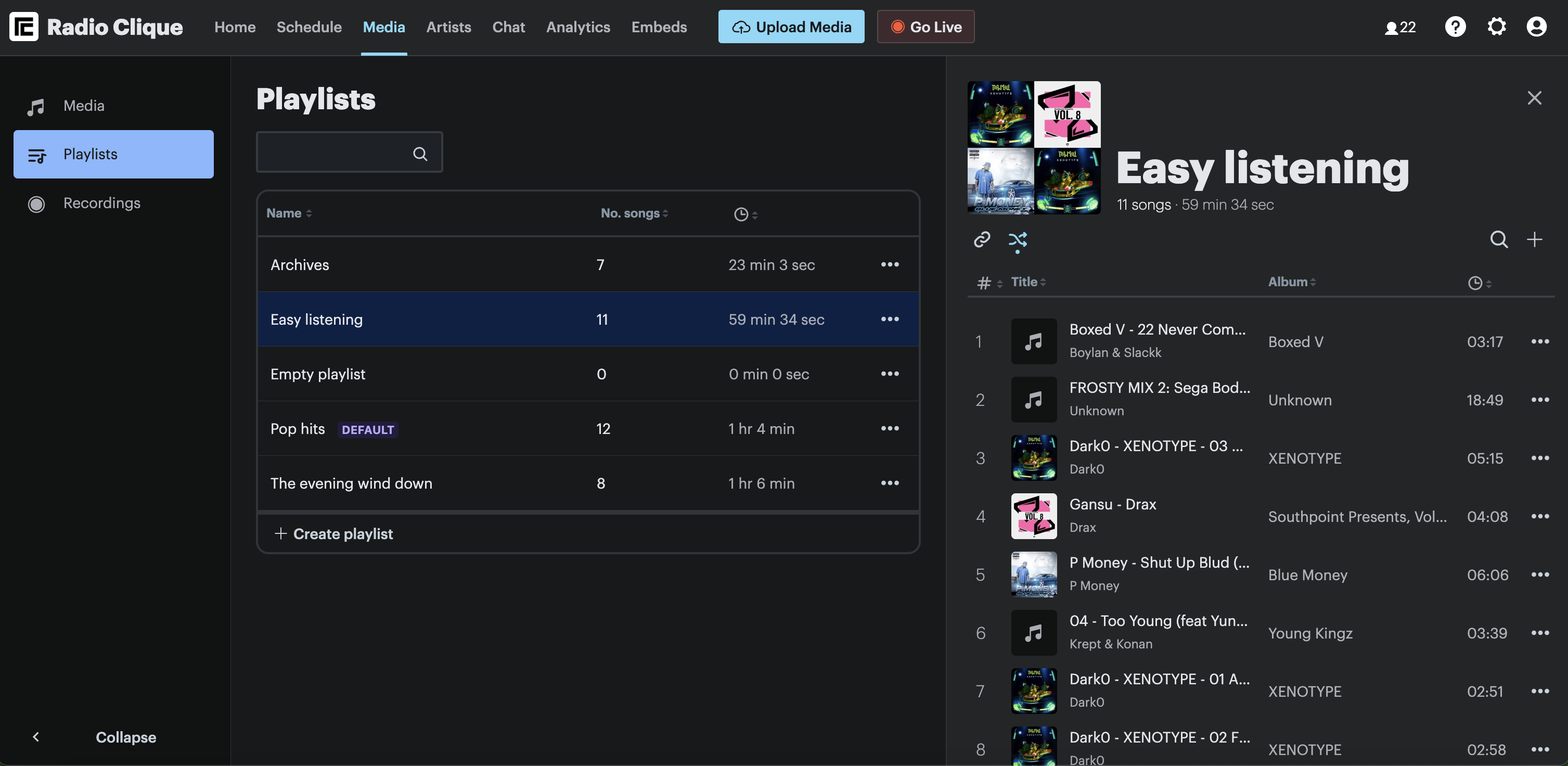
The company is based in New Zealand, do you see global differences of how popular the community/web radio genre is?
Charles: For sure. Community radios are much more popular in the UK, Europe and in the US. The reasons are different (even inside Europe), but in general I think small and mid-size cities are in favor of community radio projects. Also, I see an evolving trend for South America, which has to do with popular music being reinterpreted there, and community radios are perfect platforms to spread such new genres. I think the power and significance of community radios are “selector culture”, meaning that people (who tend to be less active in in-person communities) look for their niche scenes.
Technically speaking, what is Radio Cult and how is it implemented?
Charles: It is basically a web app served by the Amazon cloud (AWS). Our backend is implemented in Node.js, our frontend in React/TypeScript, and we still offer the aggregator app for mobile platforms. Thanks to AWS and related services, we can offer a highly efficient and performant service. The heart of our audio processing capabilities is implemented via Liquidsoap, which is a third-party free software, used by most radio engines.
Let me come back to the SaaS vs self-hosted question. I know some projects in the field of independent culture (e.g., some members of the Reset! network) that are conscious about their choice of platform providers and who tend to avoid big tech. Amazon is one of them, and although Radio Cult is not necessarily dependent on their services (and could probably be hosted elsewhere too), your customers will also become Amazon users. Don’t you think that this choice may alienate some potential radio projects? Wouldn’t the self-hosting option be a natural approach to tackle some of these “non-functional requirements” (a bit like Ghost.org is doing for blogging and community building)?
Charles: Yeah, Ghost is a very good example of self-hosting. I’ve listened to a few podcasts where they talk about the company’s philosophy. It’s super interesting. They’ve done a great job of making an open-source product that’s good for the community and supports them and their staff as well. It’s very impressive because not a lot of people manage to accomplish that.
In regards to introducing a self-hosted version of Radio Cult: I think the issue we have is that we have a very distributed architecture to make sure we are fault tolerant and can scale well. We would essentially need to rework some pieces so that different parts of the infrastructure can live alongside one another. Similar to how Azuracast and Libretime are collections of Docker containers where the backend server, Liquidsoap, database, and everything else run on the one server.
We don’t entirely rely on AWS. A few pieces of our infrastructure actually live on smaller providers. The fact is that the only real competitors to AWS that have the same level of capability and flexibility are other big tech providers (e.g. GCP).
A lot of our infrastructure/functionality is dockerised and so could essentially be run anywhere. Other pieces rely on AWS abstractions which greatly accelerate development time; this, in turn, leads to real value for stations a lot quicker. It’s definitely a tricky tradeoff, between supporting smaller companies and moving fast, that we try to balance.
It’s a really interesting idea though. I’ll keep it in mind as we do our future work. It’ll be important, as I’m sure there will be many decisions we have to make in the future that could either move us closer towards a self-hosted future or further away.
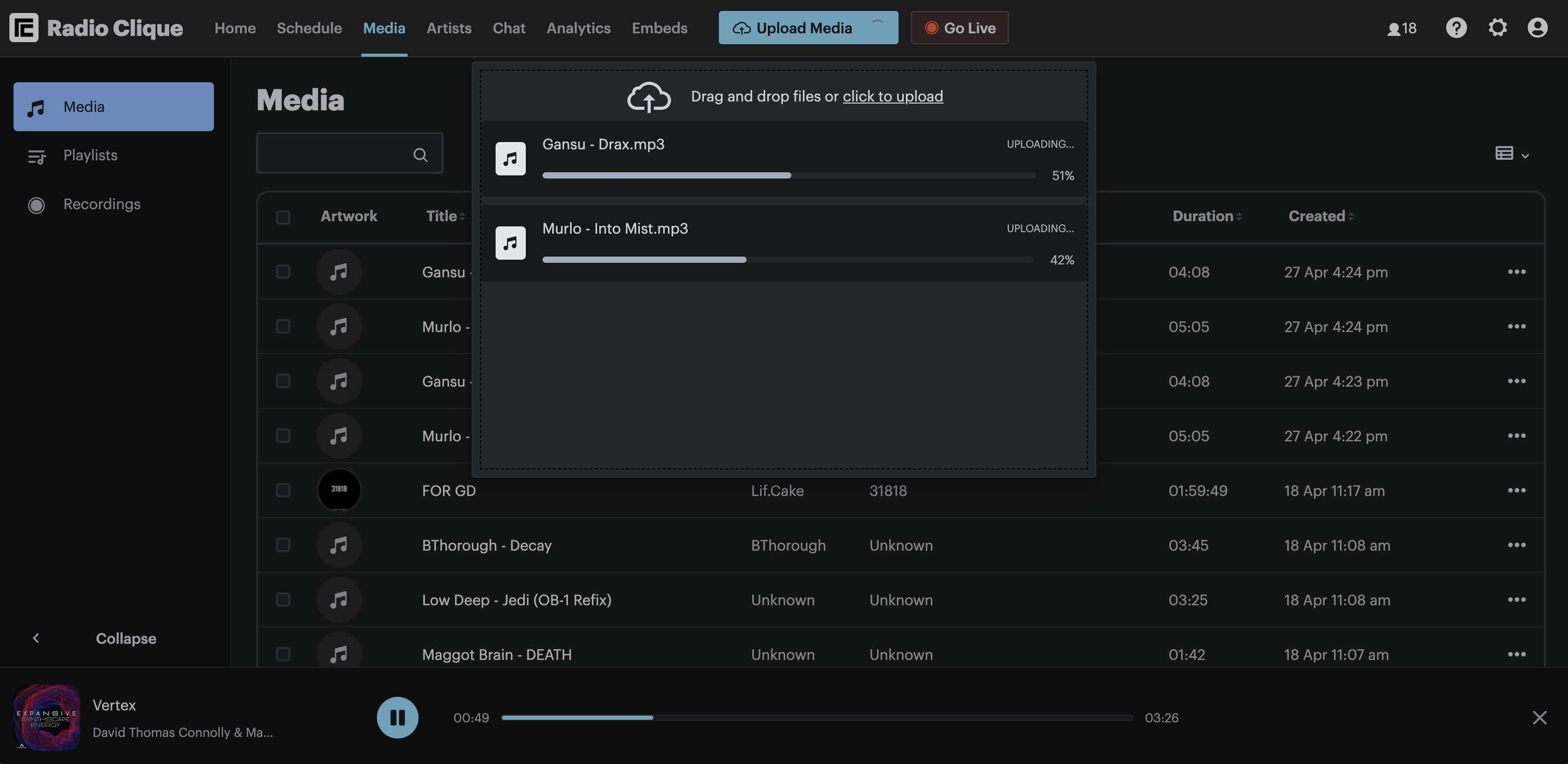
What are the distinguishing features of Radio Cult? We talked about “scheduling” when we first met, which is a tool to implement flexible programming. Do you think it’s one of Radio Cult’s strong sides?
Charles: Yes, scheduling is one of them. We offer a calendar-style programming interface that supports complex rules for repetition and other patterns. Our scheduler is very robust. For example, if you want to change the media on an event, while the event is already playing – you can. The new media gets picked up in 60 seconds and smoothly fades in. This is definitely something our competitors struggle with.
Radio Cult also has flexible ways of fading shows and media, depending on the context such as live shows, fallbacks, pre-recorded mixes, and playlists. One thing we do offer, which most other platforms don’t, is smooth fading in of a live set and then fading out when the connection ends.
What is the main philosophy of building blocks that Radio Cult offers?
Charles: Radio Cult is not a site builder. We follow a modular philosophy of the typical widgets that are needed to build a radio. Such modules are the radio player, the schedule calendar, or the community chat. You can use your favourite site builder (such as WordPress), or build your site from scratch, and embed our widgets as needed. As a minimal solution, our widgets can be shared standalone as pop-up web applications.
We also offer an API, similar to a headless CMS, for programmatic integrations, some of it is internal (to implement the admin view, for example), which we can open on demand for advanced users.
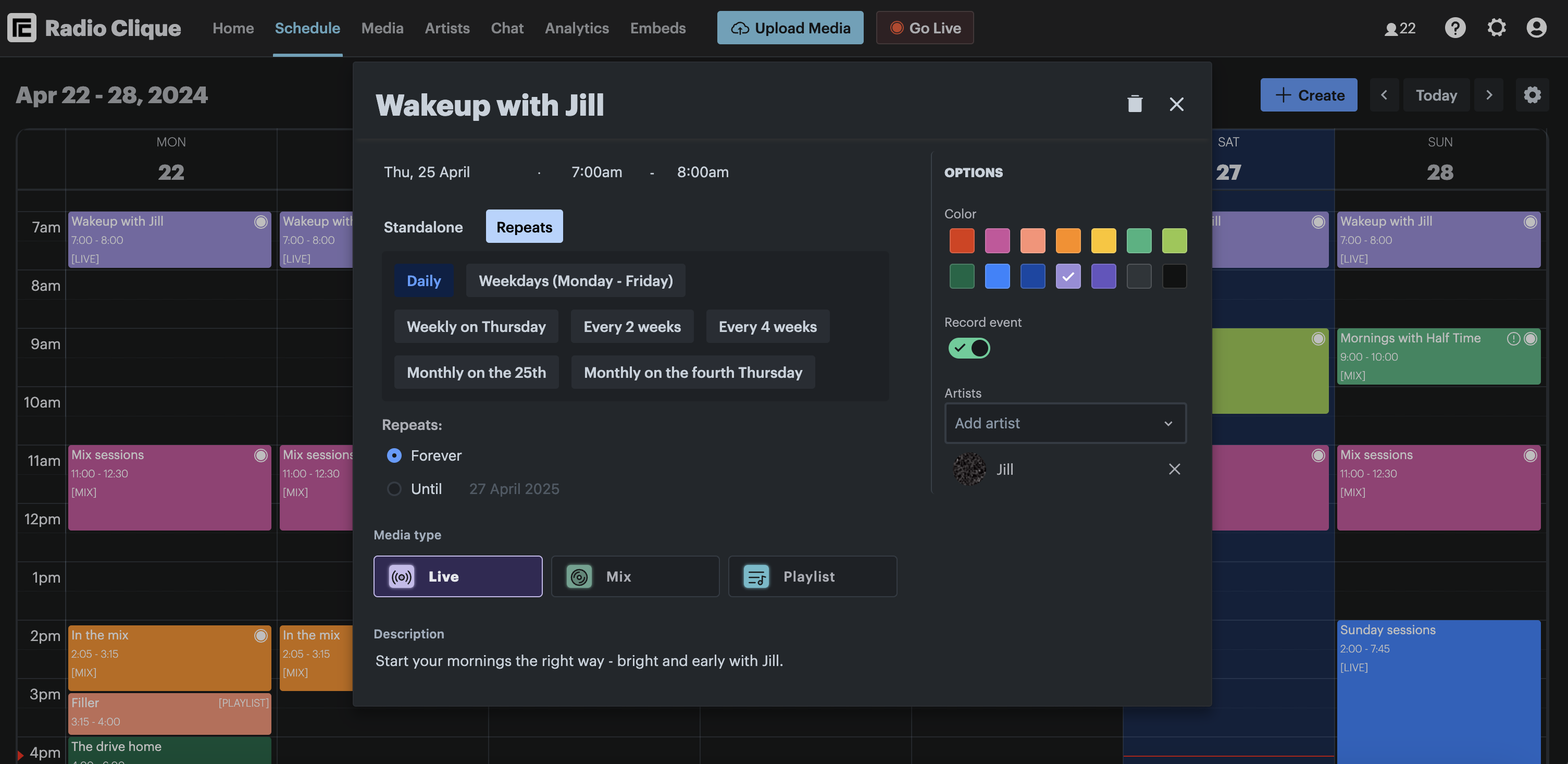
How about archiving?
Charles: Like I said, storage is one of our strong sides, so yes, you can record and keep your past shows all within Radio Cult. As of now, archives are downloadable from the admin site, or they can be uploaded to SoundCloud or Mixcloud (as a built-in integration option).
Finally, what gives you stability as a platform to bet on? Are you a successful business already?
Charles: Radio Cult is a full-time and professional activity for us. So yes, we definitely plan to stick around for a long time to come. Luckily, thanks to recent sales and after rounds of reinvesting from our own pocket, we already have enough subscriptions for a more or less healthy operation in a minimal setup.
And you recently moved to London…
Charles: Yeah, this is closer to where most of our customers are and I’m excited to be more involved in the community and independent radio space.
Great, hope to meet you in person soon! And thanks for the great chat Charles!
This article is brought to you as part of the EM GUIDE project – an initiative dedicated to empowering independent music magazines and strengthen the underground music scene in Europe. Read more about the project at emgui.de.
Funded by the European Union. Views and opinions expressed are however those of the author(s) only and do not necessarily reflect those of the European Union or the European Education and Culture Executive Agency (EACEA). Neither the European Union nor EACEA can be held responsible for them.


